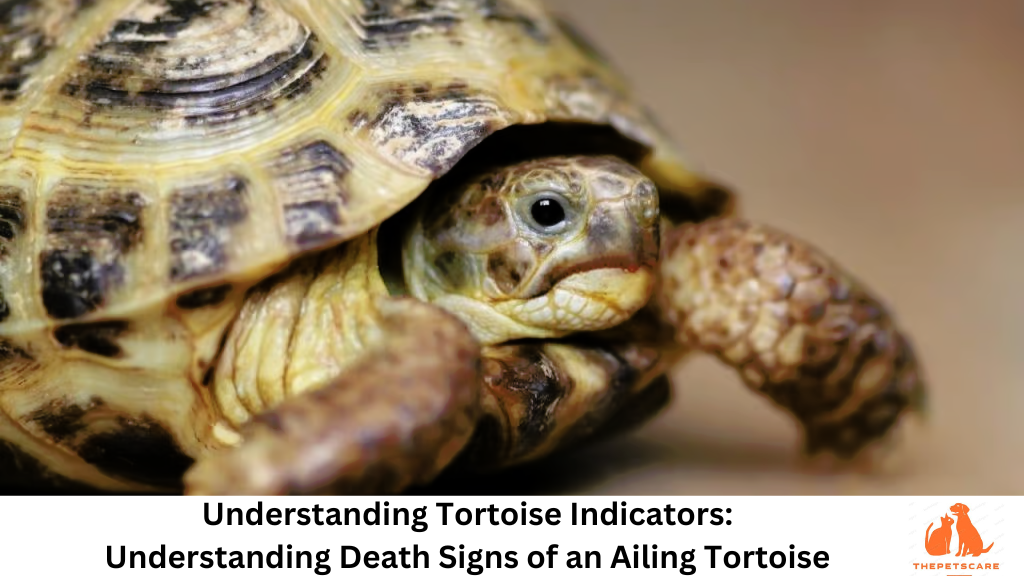With its slow, steady pace, the tortoise has been considered a symbol for resilience and long-term longevity. The fascination of these fascinating creatures has captured the attention of people all over the world. Tortoises, just like all living creatures, are susceptible to illness and death. It is important for wildlife enthusiasts and pet owners to be able to recognize the signs of an ailing tortoise. This will help them identify any potential health problems early and seek appropriate veterinary treatment. This article will explore the signs that a tortoise is dying, and how to identify them.
1. Behavioral Changes
A noticeable change in behavior is one of the first signs that a tortoise may be dying. Tortoises spend the day mainly basking in the sun and exploring their environment. A sick tortoise will show signs of lethargy and loss of appetite. It may also be less interested in its environment. A sudden change in behavior could be an indication of a health problem.
2. Changes in eating habits
Tortoises eat mainly leafy greens and vegetables. Healthy tortoises are usually enthusiastic about their meals. A sudden decrease in appetite or refusal to eat could indicate an illness. Check for abnormal eating behavior, including difficulty swallowing and excessive drooling.
3. Respiratory Issues
Tortoises are prone to respiratory problems, which can be fatal if not addressed. A respiratory infection can be indicated by wheezing, laboured breathing or a visible discharge coming from the mouth or nose. These symptoms need immediate veterinary care as they can quickly deteriorate a tortoise’s health.
4. Shell Abnormalities
The shell of the tortoise is an important part of its anatomy. It serves as a shield, and provides structural support. It is important to take any unusual changes in the appearance of the shell, including soft spots, discoloration or cracks. Shell abnormalities may be an indication of metabolic bone disease, or shell rot. Both of these conditions can be deadly if they are not treated quickly.
5. Weight Loss
It is important to monitor your tortoise’s weight in order to gauge its health. Weight loss that is significant and unjustified can be a sign of underlying health problems such as parasitic infestations or malnutrition. You should regularly weigh your pet, and consult a veterinarian if the weight loss continues.
6. Eye problems
Healthy tortoises should have bright, clear eyes. You may notice swelling, discharge or crustiness around your tortoise’s eyes. This could indicate an injury or infection. Tortoise eye problems can be uncomfortable and painful, requiring veterinary care.
7. Changes in Urination & Defecation
Keep an eye on the patterns of urination, defecation, and bowel movements to gain valuable insight into your tortoise’s health. Blood in urine or feces or irregular bowel movement may indicate urinary tract or gastrointestinal problems.
8. Loss of Mobility and Balance
Tortoises have a good balance and should be concerned if they suddenly lose their coordination or experience mobility problems. Your tortoise may be showing signs of neurological conditions, an infection or injury if it is stumbling or cannot support itself.
9. Skin Problems
The skin of a tortoise can reveal important information about its health. Be on the lookout for abnormalities such as lesions, blisters or excessive shedding. Skin problems can be caused by parasitic infections, shell decay, or nutritional deficiencies.
10. Unresponsiveness
A dying tortoise can become unresponsive or show signs of extreme weakness in the final stages of its illness. In this case, immediate veterinary care may be needed to assess the situation in order to decide the best course of action.
Understanding the signs of sick tortoises, whether you are a responsible tortoise caregiver, a wildlife enthusiast, or if you own a pet tortoise, is essential. Early recognition of these symptoms can have a profound impact on the health of these amazing creatures. A balanced diet and a clean environment, along with regular veterinary checks, can help prevent and address potential health problems. Early intervention and proper care is key to ensuring a long and healthy lifespan for these amazing reptiles.


